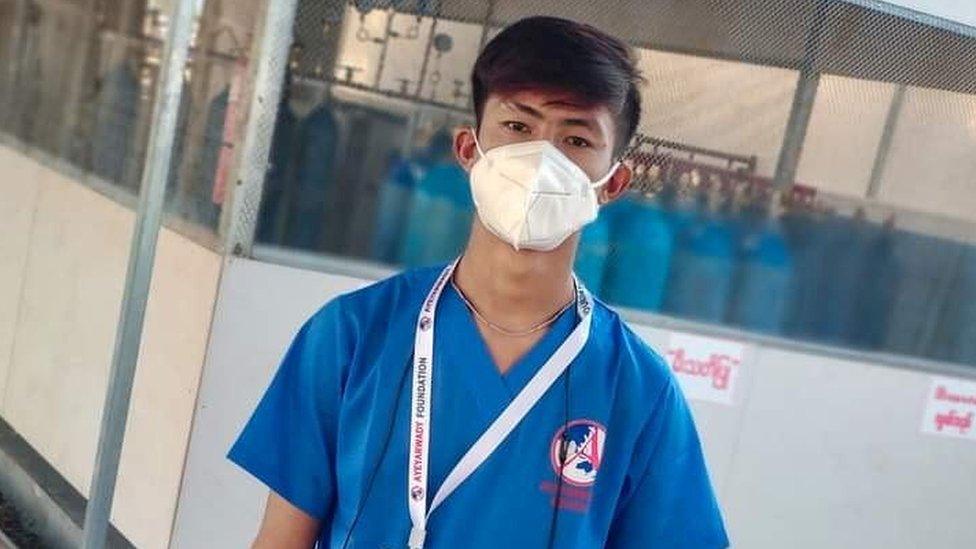Myanmar coup: The people shot dead since the protests began
- Published

More than 700 people have been killed by security forces since Myanmar's military grabbed power in a coup on 1 February, according to the Assistance Association for Political Prisoners (Burma). The BBC has spoken to loved ones of three people who have died.
As Myanmar's coup violence continues to spiral, so has the number of its victims as a crackdown on protesters intensifies.
Some of those who died had taken part in anti-coup protests, while others - including children - were simply sitting in their homes when they were killed.
Here, three families share their stories.
The teen who sang pro-democracy songs on TikTok
Fourteen-year-old Pan Ei Phyu was an ardent supporter of the pro-democracy movement, and had made several TikTok videos of herself singing pro-democracy songs.
Fearing for her safety, her mother Thida San didn't let her join the street protests.
But that wasn't enough to save her.
Pan Ei Phyu was shot inside her house as she wanted to open the door to protesters fleeing a military crackdown on 27 March. It was also the deadliest day since the coup began - at least 114 people, including 11 children, were killed.
"She suddenly fell down and I thought she had slipped. But then I saw the blood on her back and realised she had been shot," Thida San told the BBC, breaking into tears.
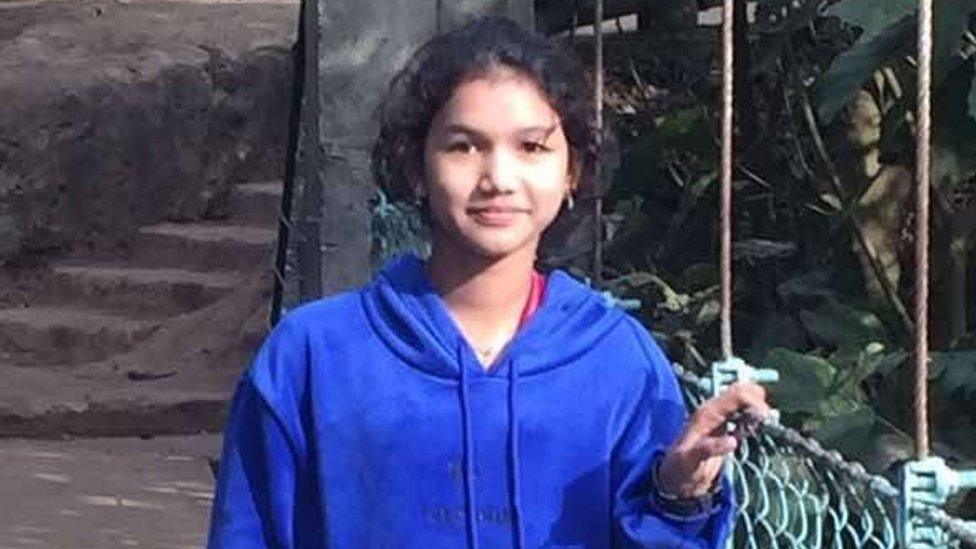
Pan Ei Phyu was killed inside her home on 27 March, the deadliest day since the coup so far
In Burmese, "pan" means flower, "ei" means soft, and "phyu" means white.
"My daughter was a beautiful girl when she was born, just like a soft little flower. That's why I gave her the name."
She recounted how helpful her daughter was around the house, and how she dreamed about opening an orphanage when she got older.
"I feel like my life is not worth living without my child. I want to die instead of her."
Pan Ei Phyu's death has also deeply affected her younger brother, 10-year-old Mg Sai Sai. He did not sleep at all on the night his sister died, and kept watching her TikTok videos instead, Thida San said.
The family have since moved house because Thida San is worried something bad will happen to them again.
"Our lives are not safe any more."

A BBC team has compiled this list of some of the people killed since the coup:
Please activate Jacascript to see the graphic

The happy-go-lucky man training as a goldsmith
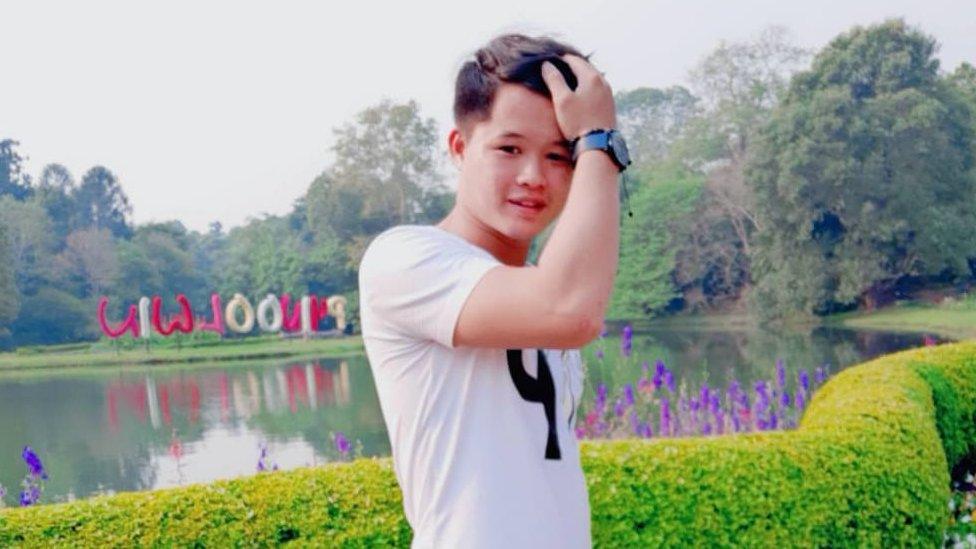
Zin Min Htet was the youngest child and only son of his family
Zin Min Htet would do anything to help his friends.
"No matter how much financial difficulty he was in, he helped his friends with money or anything else. He had a good soul. He was always smiling," his friend Ko Sai told the BBC.
Moments before he was shot dead on 8 March, the 24-year-old was at the frontline of an anti-coup protest armed with nothing but a shield, trying to protect other protesters.
His mother Daw Ohn Ma rushed to the hospital when she heard he had been shot.
"I wanted to hear his last words, calling me mother. I didn't. There was blood everywhere. I couldn't bear to look at him. He was pale and cold and had already lost a lot of blood," she told the BBC.
"What could I say? It was cruel and ruthless.
"All I knew was that I had to bring his body back home as soon as I could."
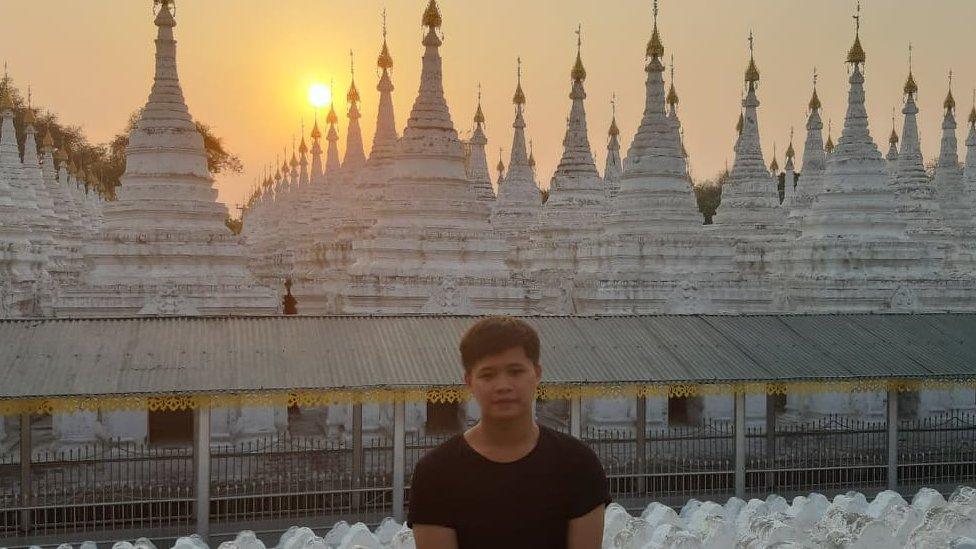
Zin Min Htet loved his mother's cooking and always invited his friends home
Zin Min Htet - who had been training as a goldsmith for three years - was her youngest child and only son.
She recalls that he had promised her he would buy her a house as soon as he made enough money.
"He had a happy-go-lucky attitude, and never annoyed or made me sad. He loved my cooking so much, he refused to eat anything else and would often invite his friends home for dinner."
On the day he died, Zin Min Htet had told his mother he was going to work. He lied because she had been trying to stop him from joining the protests just the night before.
But she said he at least died doing what he wanted.
"I am proud of my son, he was a hero," she said. "He was too eager to contribute to the country."
The taxi driver shot in front of his wife
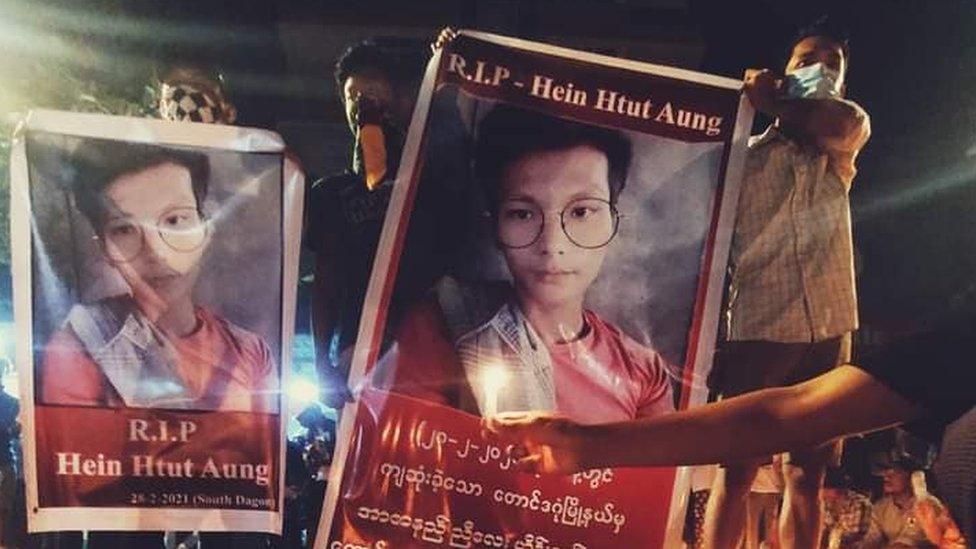
People mourn the death of Hein Htut Aung
On 28 February, Hein Htut Aung and his wife Ma Zin Mar were on their way to an anti-coup protest.
The couple had made a habit of attending protests after they finished work. But on that day, only Ma Zin Mar came home.
They had been taking a bus to join the protests. But the bus was stopped and passengers had to get off because of gunfire.
"He was shot while we were crossing the road," she told the BBC. "Not very far from us, there were some protesters barricading the road with dustbins and barbed wire because they were being shot at.
"He shouted in pain and I saw blood on his chest. I tried to hold and press the hole."
He was rushed to the hospital, but it was too late.
Myanmar coup: How did we get here?
Hein Htut Aung was a motorcycle-taxi driver, so everyone in the neighbourhood knew him.
"He was a very simple man. He was peaceful and didn't talk much to other people. He would just play games on his phone in his free time. He took care of the family with whatever he earned honestly from his work."
The couple had been married five years after meeting online and lived a "quiet life" in South Dagon township.
"We used to be together wherever we went. I miss him."
Now, Ma Zin Mar says she will keep protesting until the coup ends.
"I admire the families of people who sacrificed their lives [for the cause]. I would like them to stay strong. I am feeling the same as them because I have also lost my husband.
"But we can't stop. We can't step back now. If we do, there will be more deaths."
As told to BBC Burmese and Grace Tsoi
Graphics by BBC East Asia Visual Journalism and BBC Burmese
Related topics
- Published21 March 2021
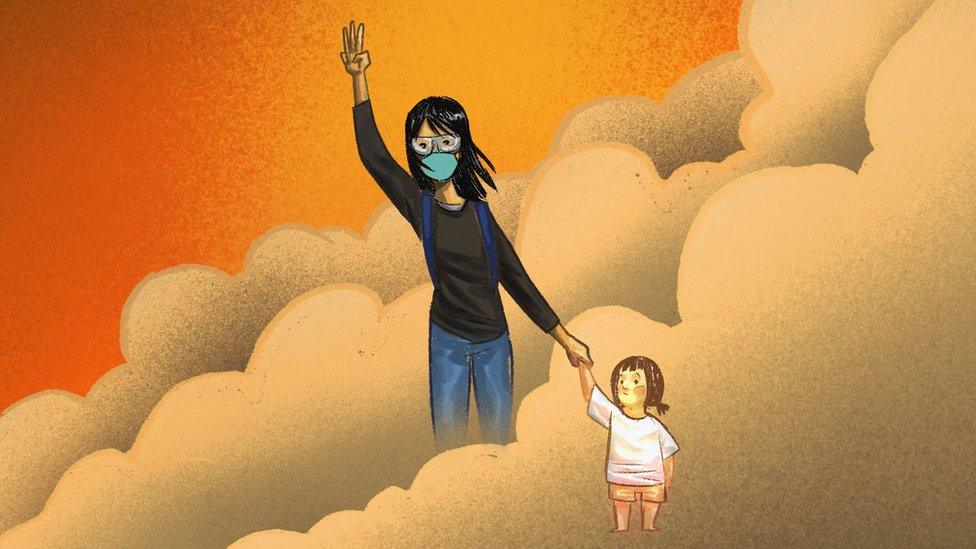
- Published13 February 2021
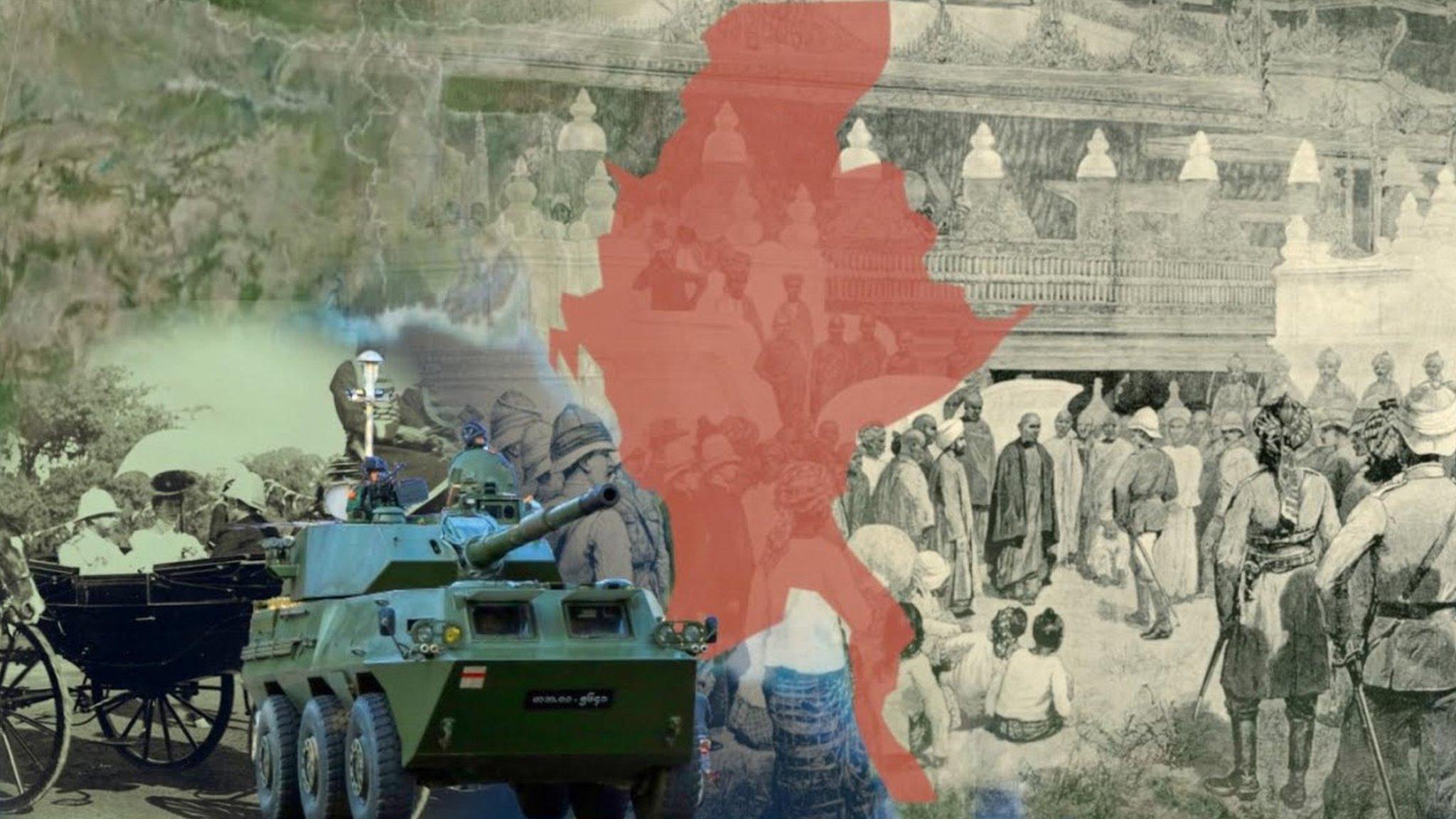
- Published1 April 2021
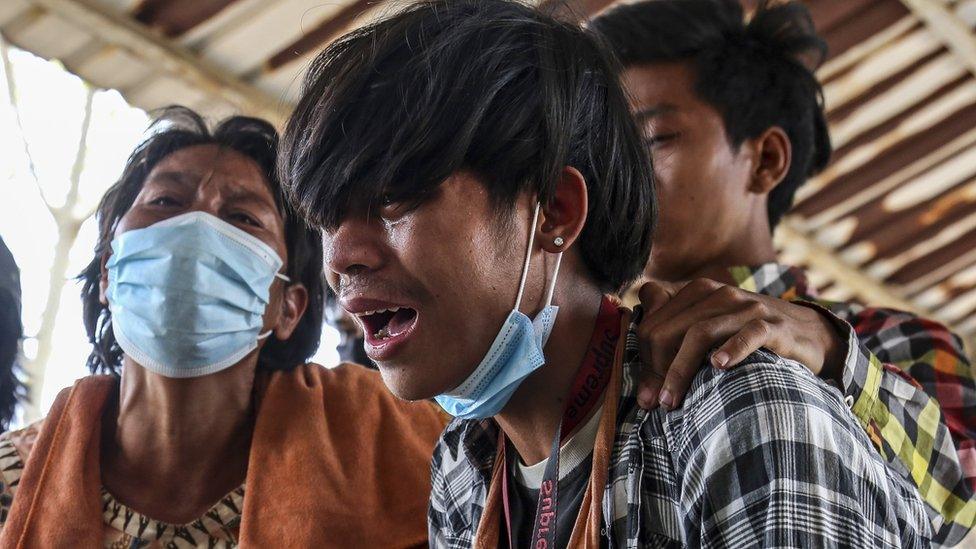
- Published31 March 2021
- Published28 March 2021
